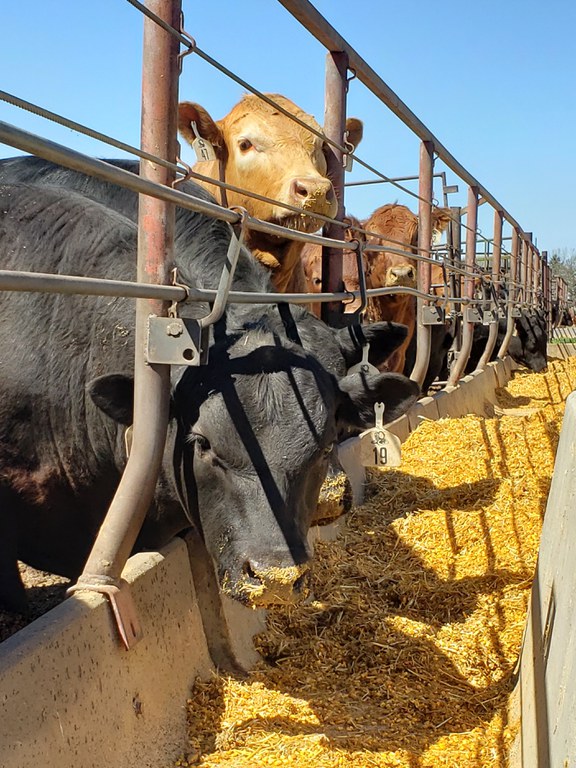Summer Roundup
As 2020 started, most of us had great optimism for the new year, but that quickly changed and we have all pivoted and altered our course. It’s amazing to think that this year is now two-thirds over. One advantage during these times of social distancing is more time focused on wrapping up projects and clearing things off the ‘to do’ list. One thing is certain, social distancing gave me plenty of time to accomplish these tasks.
One such project was publication on the pen cleaning study from the winter of 2018/2019. While our study was not able to show improvements in steer average daily gains, we were able to demonstrate that greater extent of pen cleaning increased marbling score and subsequently improved carcass quality grades. For those of you interested in more detail about this study please feel free to reach out and I can share a link to the publication, or you can access the abstract at https://doi.org/10.1016/j.livsci.2020.104204.

Steers at bunk on corn silage, corn, and distillers grain based feedlot rations
Meanwhile, Carrington REC Research Specialist Wayde Rodehorst and NDSU Animal Science graduate student Becca Moore have been working on research, too. They recently wrapped up three projects, including a pair of studies on the use of soybean hulls in beef cow/calf and feedlot rations, and a metabolism project looking at roughage inclusion rates in wheat-based feedlot rations.
Of course, the livestock crew has been l, baling hay and straw, fixing corrals and fences, and making sure that the day-to-day operations at the CREC livestock unit continue without a hitch as fall feeding, weaning, and eventually winter arrive.
Moving forward, we will start a number of new research projects including evaluation of roughage sources in feedlot rations. We are collaborating on research using new and emerging feed ingredients in beef cattle rations. We will also be conducting a second receiving and finishing project on steers from dams managed under different trace mineral and vitamin regimens in early gestation and during lactation. This project will allow us to gain greater understanding of how previous trace mineral programs impact beef calves’ ability to manage stress associated with weaning and the transition into feedlot settings.
Anyone interested in more information about our research projects should reach out for a visit or tour.
Bryan Neville
Bryan.Neville@ndsu.edu
Animal Scientist


